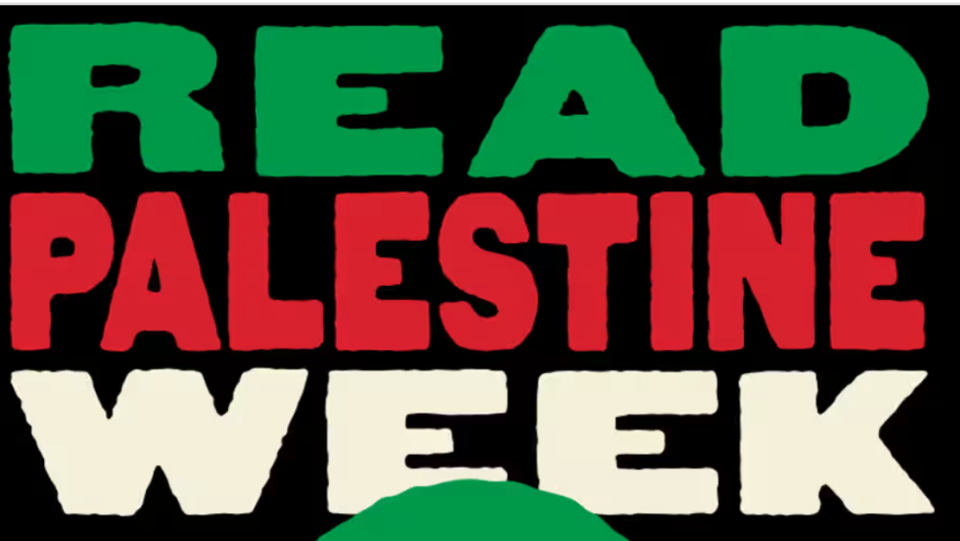Through my UK/US publisher of The Palestine Laboratory, Verso, I was pleased to be involved in this recent initiative:
A group of publishers has launched a week-long initiative encouraging people to read books by Palestinian authors and about Palestinian history by offering free ebooks.
#ReadPalestine begins on Wednesday and runs until 5 December. The campaign was created by Publishers for Palestine, a group that published a statement of solidarity with Palestine in early November. The letter, which called for “an end to all violence against Palestinian people”, was signed by more than 350 publishers across the globe, including more than 40 UK publishers, such as Verso Books.
More than 30 poetry, fiction and nonfiction ebooks are available to download. They include Wild Thorns, a novel by Sahar Khalifeh (translated by Trevor LeGassick and Elizabeth Fernea) about life for Palestinians in the Israeli-occupied West Bank; Palestine Speaks: Narratives of Life Under Occupation, edited by Mateo Hoke and Cate Malek, a collection of first-person observations from the West Bank and Gaza; and The Palestine Laboratory: How Israel Exports the Technology of Occupation Around the World, by Antony Loewenstein, about Israel’s military industrial complex.
“Palestine, and Palestinian people within the diaspora have produced such an incredibly rich body of literary work, of journalism, of poetry – that really deserves to be celebrated,” said Publishers for Palestine’s Róisín Davis, who is a literary agent at Roam Agency, and rights director at Haymarket Books. The free books allow readers to “discover the richness and the breadth of Palestinian history, of Palestinian culture, of Palestinian words, creativity, and resilience”.
Most of the titles are in English, with others in French, Spanish, Arabic, Catalan, Polish, Indonesian, Slovenian and Greek.
“We also encourage readers to post on social media about their favourite Palestine books, to quote from their favourite authors, and to make learning more about Palestine an act of solidarity,” states the group. It invites independent bookshops and libraries to join the initiative by creating #ReadPalestine displays and social media posts.
The initiative coincides with the UN International Day of Solidarity With the Palestinian People. The observance marks the anniversary of Resolution 181, known as the partition plan, passed in 1947. The resolution called for the partition of land in the British mandate of Palestine into Arab and Jewish states, with Jerusalem declared a separate internationalised territory.
In their letter of solidarity, Publishers for Palestine stated that “histories of white supremacist, colonial and capitalist systems of erasure, extraction, and control” are reflected “even within the rarefied worlds of arts and culture”, and referenced this year’s Frankfurt book fair, where an awards ceremony due to honour a novel by Palestinian author Adania Shibli was called off.
“We condemn the complicity of all those working within corporate and independent publishing who enable or condone such repression through their cowardice, silence, and cooperation with the demands of Israeli occupation and imperialist donors, funders, and governments,” it added.
